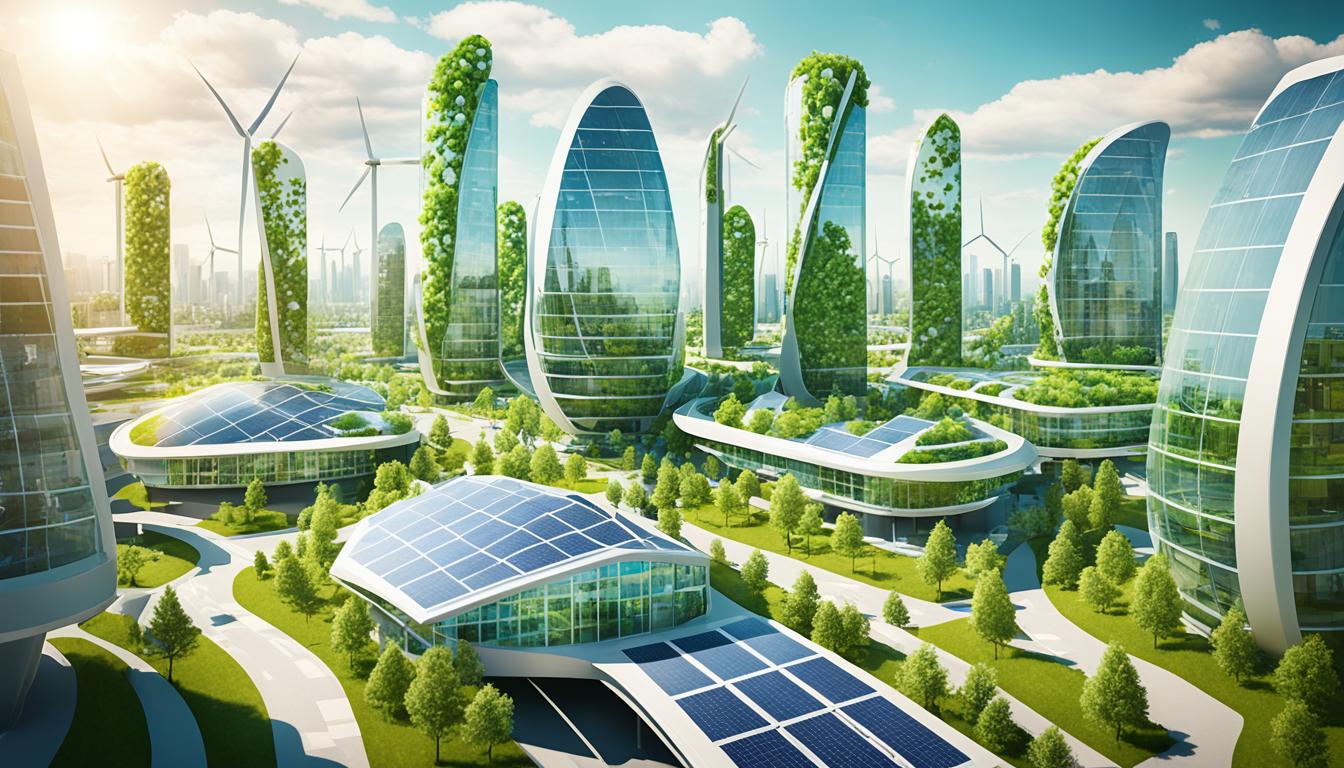In today’s rapidly changing world, the need for innovative solutions to address environmental challenges and build a sustainable future has never been more crucial. Climate technology, commonly known as Climate Tech, has emerged as a hot topic, driving advancements in various fields with the aim of creating a greener and more resilient world.
Climate Tech refers to the application of technology to combat climate change and promote sustainability. It encompasses a wide range of innovations, from renewable energy sources to carbon capture technologies, that have the potential to revolutionize how we tackle environmental issues.
The importance of Climate Tech lies in its ability to provide practical solutions for a more sustainable future. By harnessing technological advancements, we can mitigate the impact of climate change on our planet and foster global sustainability.
In this article, we will delve deeper into the world of Climate Tech, exploring the latest trends and innovations that are shaping our future. We will examine how these technologies are revolutionizing industries and discuss their potential impact on driving positive change in our society.
Join us on this exciting journey into the world of Climate Tech as we explore the cutting-edge innovations that are paving the way for a sustainable and resilient future for generations to come.
Exploring Climate Tech Innovations
As the world grapples with the urgent need for sustainable solutions, the field of Climate Tech has emerged as a beacon of hope. This innovative sector, encompassing various green technologies, is driving advancements in renewable energy, carbon capture, and sustainable transportation.

Green tech is at the forefront of these innovations, aiming to minimize environmental impact and promote a cleaner future. Renewable energy sources, such as solar and wind power, are increasingly being harnessed to reduce our dependence on fossil fuels. These sustainable alternatives not only help combat climate change but also foster energy independence and create new economic opportunities.
“Renewable energy technologies have the potential to revolutionize the way we power our world. By harnessing the power of the sun, wind, and other natural resources, we can reduce greenhouse gas emissions and mitigate the effects of climate change.” – Dr. Jane Thompson, GreenTech Solutions
In addition to renewable energy, carbon capture technologies play a vital role in mitigating greenhouse gas emissions. These innovative methods capture and store carbon dioxide, preventing it from entering the atmosphere and exacerbating climate change. By trapping and safely disposing of CO2 emissions, carbon capture technologies help us move closer to achieving carbon neutrality and a cleaner environment.
Sustainable transportation solutions
The transportation sector is a significant contributor to greenhouse gas emissions. To address this issue, Climate Tech is driving the development of sustainable transportation solutions. Electric vehicles (EVs) are gaining popularity as a cleaner alternative to traditional gasoline-powered cars. With advancements in battery technology and charging infrastructure, EVs provide a greener option for commuting and personal transportation.
Furthermore, sustainable aviation is also on the horizon. Companies like ZeroAvia and Airbus are exploring hydrogen fuel cells and electric propulsion systems to reduce the carbon footprint of air travel. By investing in these innovative technologies, we can make air transportation more environmentally sustainable without compromising on efficiency or safety.
With Climate Tech innovations, the future looks promising for combating climate change. These cutting-edge solutions pave the way for a greener and more sustainable world, where renewable energy, carbon capture technologies, and sustainable transportation become the new norm.
| Innovations in Climate Tech | Key Features |
|---|---|
| Renewable Energy | – Harnesses natural resources like solar and wind power – Reduces dependence on fossil fuels – Offers energy independence and economic opportunities |
| Carbon Capture Technologies | – Captures and stores carbon dioxide emissions – Mitigates greenhouse gas emissions – Moves towards carbon neutrality |
| Sustainable Transportation Solutions | – Electric vehicles as cleaner alternatives – Advancements in battery technology and charging infrastructure – Exploration of sustainable aviation technologies |
The Future of Climate Tech
As we look ahead, the future of Climate Tech holds immense potential for addressing the environmental challenges we face. Advancements in this field can play a crucial role in building climate resilience and transitioning towards a circular economy. Climate resilience, which refers to the ability of communities and ecosystems to withstand and recover from the impacts of climate change, is a key focus area for Climate Tech innovation.
One aspect that holds significant promise is the integration of Climate Tech solutions into the circular economy framework. The circular economy aims to minimize waste and maximize the use of resources by keeping materials and products in a continuous loop of reuse, recycling, and regeneration. By implementing circular practices and leveraging Climate Tech, we can create a more sustainable and efficient system that reduces greenhouse gas emissions, conserves resources, and minimizes environmental damage.
However, realizing the full potential of Climate Tech requires robust policy frameworks and collaborations between governments, businesses, and individuals. Policymakers play a crucial role in creating an enabling environment that supports the development and adoption of Climate Tech solutions. They can incentivize research and development, provide funding and grants, establish regulatory frameworks, and promote international cooperation to address global climate challenges.
Collaboration among stakeholders is also essential. Businesses have a responsibility to invest in Climate Tech innovation, integrate sustainable practices into their operations, and support the scaling up of solutions. Individuals can contribute by making environmentally conscious choices, advocating for climate-friendly policies, and supporting businesses and organizations that prioritize sustainability.




